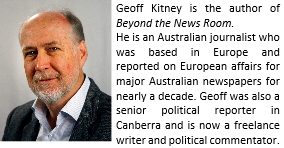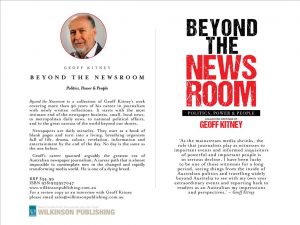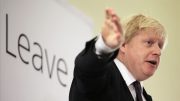Geoff Kitney poses the question: Is the sacrifice of a loved one just an unfortunate price that has to be paid for the freedom of others?
All things are relative, even death.
So, if you live in the United Kingdom and you looked at the latest Covid statistics you would be pleased to see that just 861 people died of the disease in the last week of September.
That is a big improvement on where the UK was in the week ending January 29 this year. In those seven days 9,013 people died.
But if you looked to the other side of the world and checked the latest statistics, you would see that total deaths in Australia since the start of the pandemic are around 1,300. There is currently a third wave of Covid infections in Australia, first detected on June 1.
The death toll has been steadily increasing. It is now an average of 12 deaths a day.
Since the pandemic began the UK, with two and half times the population of Australia, has recorded 7.74 million Covid cases and more than 136,000 deaths. Australia has recorded just over 100,000 cases in total and 1,290 deaths.
The obvious conclusion from this is that Australia has done far better than the UK at controlling the virus. In fact, only New Zealand among OECD countries has done better.
As island nations, controlling their borders has been an effective means of keeping Covid at bay, although at the cost of essentially bringing international travel in and out of both countries to a standstill and stranding their own citizens overseas.
And an unfortunate consequence of their low infection and death rates has been that both Australia and New Zealand lag far behind the UK – and most OECD countries – in vaccination rates. The low impact of Covid on both countries lulled them into a false sense of security which caused them to go slow on signing deals for the delivery of Covid vaccines.
The national vaccination rate of fully jabbed people in Australia is still just over 50 per cent. In New Zealand it is just above 40 per cent.
Now that the Delta variant has found its way into both countries (to New Zealand from Australia) there is a scramble to get vaccination rates to levels that will help control the spread of the disease – projected by Covid infection models to be 80 per cent or above.
Australia’s third wave of inflections is centred in the most populous states – New South Wales (NSW) and Victoria which have been locked down for months – and the national vaccination rollout has been focussed on those two states to try to accelerate their defences against Delta.
Both states are now likely to reach, quite soon, 70 per cent of the population fully vaccinated and, a few weeks later, 80 per cent – the levels regarded as necessary to limit the toll of illness and deaths that could be regarded as “acceptable”.
But other states and territories may take until Christmas to reach these vaccination levels. The risk for them would be to see rampant outbreaks of Covid leading up to Christmas, a grim prospect for the whole country.
But here is a profound question: How do you define “acceptable”?
What toll would the political leaders supporting the strategy of “living with Covid” regard as a reasonable price to pay for greater freedom for their citizens?
Here are two of the moral questions of our time: What is an “acceptable” toll and is it ok to allow people to die from a deadly disease for which governments have the tools to prevent many – who might be saved – from dying?
From the early days of the global pandemic, governments have been challenged to balance the health and safety of their populations and the rights to determine their own destinies and to have the economic means to survive.
Governments have had to respond to pressure from business, medical experts and their own political bases to deliver different outcomes.
But the starting point from which all these considerations have to be weighed is the most profound responsibility of all governments – to keep their people safe.
On this question, it is beyond doubt that some governments badly failed this fundamental test. The British government is among the worst, along with the United States, Brazil and, arguably, Sweden.
In defence of those that erred on the side of giving greater weight to arguments about individual freedom than state action to keep people safe, there are those who say that there are many hazards in daily life from which countless numbers of people die but which governments leave to the appropriate authorities to address.
In the time since the pandemic struck an estimated 20 million people worldwide have died from heart attacks. Ten million have died of cancer. Other respiratory diseases have claimed five million lives.
Covid, over the same period, has claimed an official toll of 4.55m lives (although The Economist magazine says the true number may be closer to 15m).
Critics argue that Covid is just another hazard people have to deal with and that the draconian measures applied by governments – such as long lockdowns, compulsory mask wearing and social distancing rules – have taken societies a big step closer to authoritarian rule.
But governments have mostly taken and acted on the advice of medical experts. This advice has overwhelmingly been that, without control measures, the extreme infectiousness of Covid (especially the Delta strain) would have resulted in vastly more illness and death.
The degree to which such measures have been applied have depended on the goal set by the authorities.
In Australia the goal of governments through most of the pandemic has been to achieve what is called “Covid zero” and, to a large degree, that has been achieved, with communities having to endure very tight restrictions on their freedoms, including lengthy lockdowns.
The eight state and territory governments have determined their own Covid control measures – especially using State powers to close internal borders to prevent spread of the disease from one state to another. This has caused some internal frictions but, until recently, the Australian states and territories co-ordinated their efforts to achieve Covid zero using lockdowns as the chief method of suppression.
But this has now changed.
The conservative government of the most populous State – NSW – was the first to announce that it intended to move from lockdown to “living with Covid”.
When it recorded its first surge in Covid infections in June – the beginning of Australia’s third wave – it decided not to lockdown the entire state in the way it had done previously. It chose instead to use limited lockdown in infected areas as its means of containing the virus and allowing most of the State’s citizens not in the immediate vicinity of the infected areas to go on leading normal lives.
The containment strategy failed.
But instead of going back to previous harsh measures, the State government announced that it was moving to a “living with Covid” strategy.
A Covid death is more easily prevented than a death from a heart attack or cancer or suicide and the families and loved ones of those that die know that the death did not need to happen. In effect, they are being told that the sacrifice of their loved ones was the unfortunate price that has to be paid for the freedom of others.
Apparently, inspired by their freedom-loving Conservative counterparts in the UK, the NSW government declared that from mid-October – when a vaccination level of 70 per cent of the State’s population were forecast to be reached – it would begin to end lockdowns and to return the whole State to a more normal life.
Epidemiologists warned of the risk of a rapid rise in the rate of infections with lower than optimum levels of vaccination, and ethicists declared that this was a reckless strategy for which the price was likely to be overwhelmed hospitals and the deaths of large numbers of people who would not die if the government was more cautious.
But with the NSW outbreak having already spread to Victoria and with case numbers rising rapidly – and growing public opposition to that State’s harsh lockdown rules – the Victorian government has also announced it will begin a cautious opening up.
This will present major challenges for other states still effectively Covid-free and with much lower vaccination rates.
It is also likely to present health authorities with challenges far greater than those with which they have so far had to cope, with increasing demands on health systems and the risk that hospitals will be overwhelmed by a surge in seriously ill Covid patients.
Which comes back to the core moral question: What toll would the political leaders supporting this strategy of “living with Covid” regard as a reasonable price to pay for greater freedom for their citizens?
The NSW government has not said, declaring only that it will monitor developments and adjust policy accordingly.
Both in NSW and Victoria there are already signs that their health systems are under pressure even before lockdowns are ended.
With death rates slowly creeping up and governments indicating that they do not see this as a reason to divert from their current opening up plans, they are in effect saying these statistics are “acceptable”.
This is, of course, a tiny fraction of the daily toll in the UK, where Boris Johnson’s government, by its actions, considers a much higher death toll to be an “acceptable” toll.
And, as supporters of opening up argue, people die of other diseases in similar or greater numbers without governments acting to try to strangle the spread of the virus and put society into a straight jacket.
In fact, there has been a growing chorus from the political right-wing that governments allowed health and medical bureaucrats to have far too much sway over them in advising the large-scale shut-down of the economy to suppress this particular health threat when no such action was taken to deal with other health challenges.
But the difference is that a Covid death is more easily prevented than a death from a heart attack or cancer or suicide and the families and loved ones of those that die know that the death did not need to happen. In effect, they are being told that the sacrifice of their loved ones was the unfortunate price that has to be paid for the freedom of others.
That is surely a hard thing to accept and it leaves the society in which this happens with some fundamental questions to face about the value of a human life in that society.
Headline image credit: ETAJOE/Shutterstock.com






